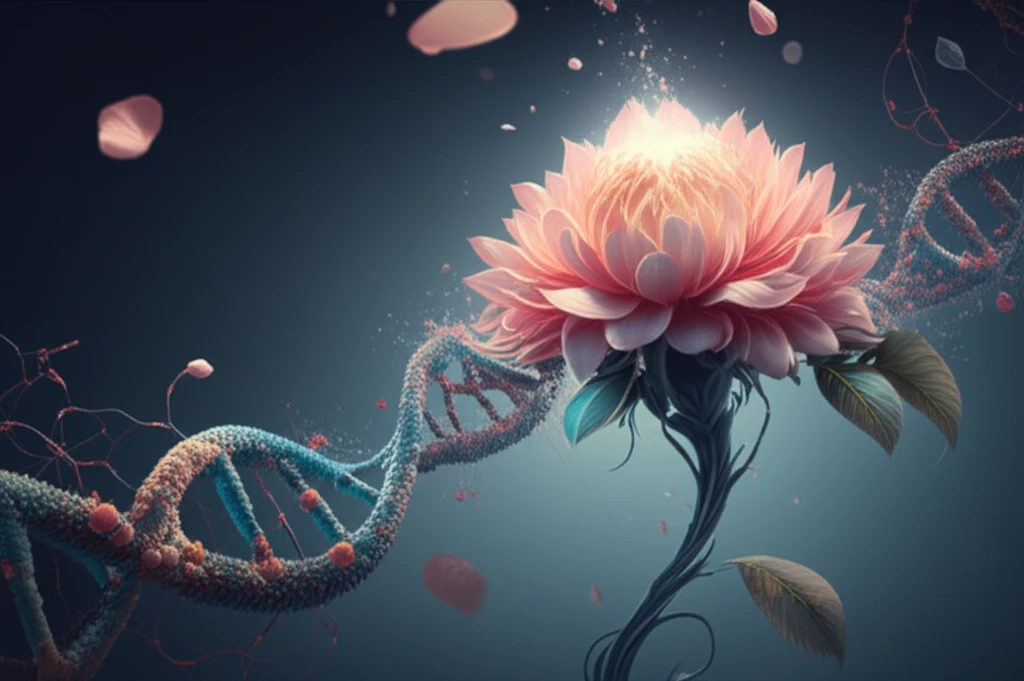
Decoding Breast Cancer Risk: Are Your Genes Talking?
"New research spotlights two gene variations, MTHFR and CDKN2A/B, and their potential link to breast cancer in Iranian women. What does this mean for personalized health?"
Breast cancer remains a leading health concern for women globally, with variations in incidence and mortality rates across different regions. This highlights the complex interplay of genetic, ethical, and geographical factors influencing an individual's susceptibility to the disease. Understanding these factors is crucial for developing effective prevention and treatment strategies.
Recent research has focused on the role of specific genes and their variations (polymorphisms) in breast cancer development. Among these, the MTHFR (methylenetetrahydrofolate reductase) and CDKN2A/B (cyclin-dependent kinase inhibitor 2A/B) genes have garnered attention due to their involvement in key cellular processes. MTHFR plays a crucial role in folate metabolism and DNA synthesis, while CDKN2A/B acts as a tumor suppressor, regulating cell growth and division.
A new study, conducted on a group of Iranian women, investigates the association between two specific polymorphisms—rs1801133 in the MTHFR gene and rs10811661 in the CDKN2A/B gene—and the risk of developing breast cancer. This article will delve into the findings of this research, exploring the potential implications for understanding individual breast cancer risk and personalized healthcare approaches.
MTHFR and CDKN2A/B: Key Players in Breast Cancer Development?

The study examined the genetic profiles of 100 Iranian women diagnosed with breast cancer and compared them to a control group of 142 healthy women. Researchers used a technique called TaqMan real-time polymerase chain reaction to identify specific variations (genotypes) in the MTHFR and CDKN2A/B genes. They then analyzed the data to determine if there was a significant correlation between these genetic variations and the occurrence of breast cancer.
- MTHFR (rs1801133): This gene encodes an enzyme vital for folate metabolism, which is essential for DNA synthesis and repair. The rs1801133 polymorphism involves a variation where cytosine (C) is replaced by thymine (T). The study found that the T allele and TT genotype were significantly more prevalent in women with breast cancer.
- CDKN2A/B (rs10811661): This gene acts as a tumor suppressor, regulating cell growth and division. The rs10811661 polymorphism involves a variation where the C allele was found to be more frequent (72%) in the study population.
Personalized Health: The Future of Breast Cancer Risk Assessment?
This research suggests that the MTHFR rs1801133 and CDKN2A/B rs10811661 polymorphisms may be associated with an increased risk of breast cancer in Iranian women. While these findings are significant, it's important to remember that genetic variations are just one piece of the puzzle. Lifestyle factors, environmental exposures, and family history also play crucial roles in breast cancer development.
The study emphasizes the potential value of incorporating genetic information into personalized health strategies. Identifying individuals with specific gene variations may allow for more targeted screening, early detection, and preventative measures. However, further research is needed to validate these findings in larger and more diverse populations.
Ultimately, understanding the complex interplay of genetic and environmental factors is key to improving breast cancer prevention and treatment. While this study offers valuable insights into the role of MTHFR and CDKN2A/B gene variations, continued research and a holistic approach to health are essential for empowering individuals to make informed decisions about their well-being.
